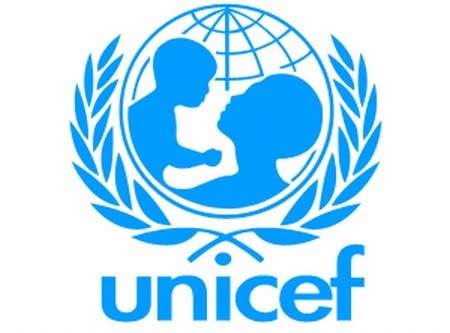
Job Summary
Company:
Unicef
Category:
Consultants
Location:
Accra
Job status:
Full-Time
Salary:
GH
Education:
Degree
Experience:
10 years
Job expires:
27 Apr-2024
Categories
Accounting / Auditing (2912)
Agriculture (799)
Aviation Industry / Shipping (351)
Banking / Finance (3170)
Building and Construction (1082)
Business Development (321)
Consultants (214)
Driver / Transportation (965)
Education / Training (3543)
Engineering (2395)
Executive / Management (904)
Hotel & Restaurant (922)
Human Resources / Admin (1101)
ICT / Computer (1673)
Insurance (308)
Legal (494)
Maintenance (56)
Manufacturing (473)
Media / Journalism (673)
Mining / Petroleum (783)
NGO / International Agencies (3120)
Oil & Gas (562)
Others (2208)
Public Health (2198)
Purchasing / Procurement (922)
Quality Control (45)
Research / Science (332)
Sales and Marketing (3341)
Secretarial / Receptionist (1562)
Security / Law Enforcement (549)
Telecommunications (559)
Uncategorized (42)
Job Vacancy For National Individual Consultant – Education Governance Analyst
In Ghana, UNICEF cooperates with the Government and other partners to defend the rights of children and help them fulfill their potential. With offices in Accra and Tamale, the UNICEF team seeks to achieve results in strategic programme areas. The overall goal is for every child to survive and thrive, to live in a safe and clean environment, to learn, to be protected from violence and exploitation, and to have an equitable chance in life. The current Country Programme of cooperation is aligned with the Government priorities, the UN Sustainable Development Partnership (UNSDP) and Key Results for Children (KRCs) in the West and Central African Region (immunization, nutrition, learning outcomes, ending child marriage and ending open defecation). UNICEF main strategies include evidence-based advocacy, system strengthening, integrated programming across sectors, emergency preparedness and response, and innovation.
Scope of work- Kindly provide your proposed all-inclusive fee based on the attached deliverables.
To undertake a mid-line and an endline “District-level education governance assessments” in Builsa North Municipal (Upper East Region) & Afram Plains North district (Eastern Region).
• The district-level education governance assessment (henceforth “Assessments”) aims to observe, capture and codify significant changes -against the baseline report- in stakeholders’ (e.g. district education officers, assembly & community members, teaching staff etc.) behaviour, attitudes, practices and viewpoints as well as outline shifting trends, processes and approaches regarding education governance and learning at sub-national levels as a result of interventions undertaken by UNICEF under the Communities of Excellence (CoE) project funded by Jacobs Foundation.
• This Assessments should highlight -against the baseline report and follow-up assessment report (June 2023)- which stakeholder relationships, incentive structures, local context, power relationships, interests, etc. have changed and or improved and why towards better education governance and ultimately improved learning outcomes because of program interventions. Further, whether reform / developmental coalitions have emerged (or not) that could lead and or sustain change in both districts.
• In this context, attention should be paid to identifying, outlining and describing selected social networks of key influential actors in both districts e.g. District Director Education (DDE), District Assembly members, District Chief Executive (DCE), SMC Chair, etc. with the power to significantly shape education service delivery.
• Further, data collection, analysis and use of generated evidence a central to project activities. The assessment should look at this in particular. E.g. project activities have strengthened stakeholder knowledge and skills in mobile School Report Card (mSCR) and education indicators, some research was undertaken on WASH in schools, and schools were regularly monitored by SISOs, Change Leaders, DEOC members etc. As a result, what evidence was generated, was it used and (if so) has it changed any behavior, practices, viewpoints, etc? It is possible to ascertain what factors and conditions have contributed (or hindered) to the update (if any) of evidence at district level to inform processes and decision-making?
Qualification Required & Experience
To qualify as an advocate for every child you will have
• An advanced university degree (Master’s) in political science, political economy, sociology, anthropology, gender studies, behavioural science, psychology, development studies or related field.
• A minimum of ten (10) years of relevant professional experience in the sector, at least five (5) of which should be in a leading function researching/investigating on governance and political economy issues at national and subnational levels in Ghana.
• Demonstrated expertise and proven track record in designing, undertaking and analyzing complex governance, and political economy analysis and assessment at sub-national / district level.
• Demonstrated expertise and experience in undertaking qualitative field research at community level.
• Demonstrated expertise and experience applying political economy analysis (PEA), Problem Driven Iterative Adaptation (PDIA), Institutional and Context Analysis or any other proven approaches.
• Expertise and field-level application of Ethnographic methodologies an advantage.
• A good understanding of Ghana’s political settlement including institutional context at national and sub-national level.
• Connections to national and subnational political and bureaucrats highly desired to access informants and other sources of primary and secondary data.
• Context knowledge i.e. local language of Kwahu Afram Plains North and or Builsa North Municipality an added value
Experience working with the UN is desirable.
Location: Accra
How To Apply For The Job
To submit your application, click on the link below and complete all relevant fields on the online application form.
Click Here To Apply Online
Closing Date: 27 February, 2024